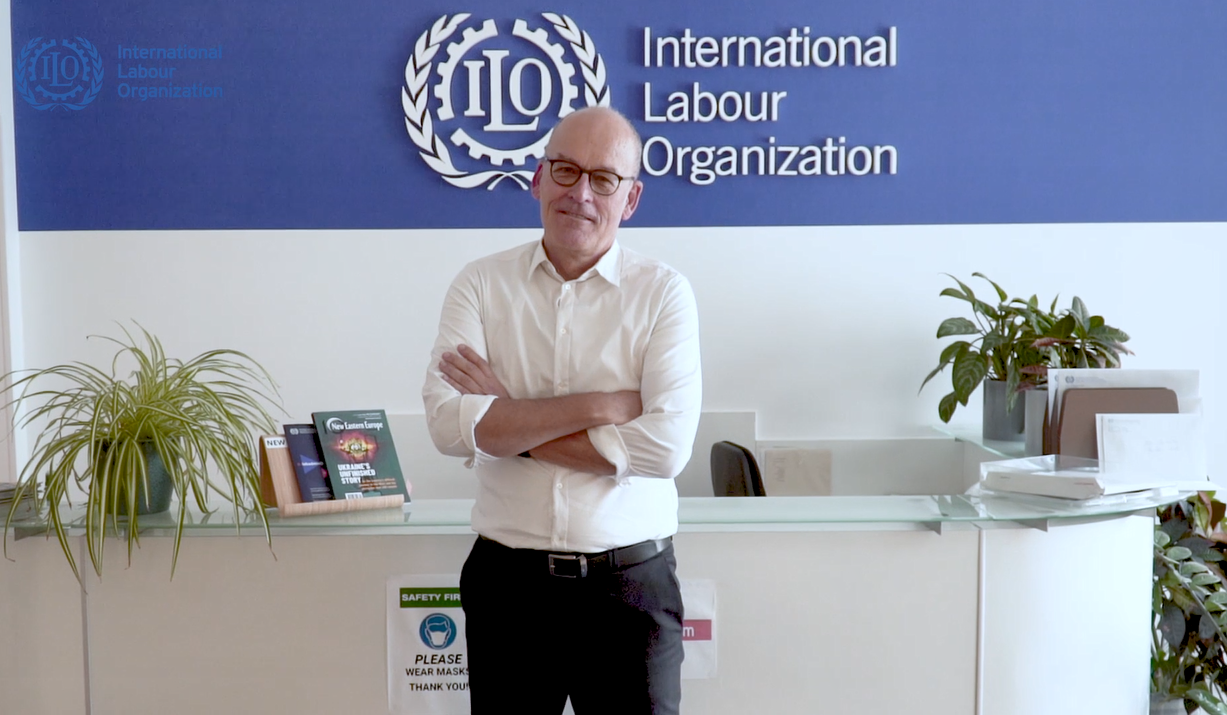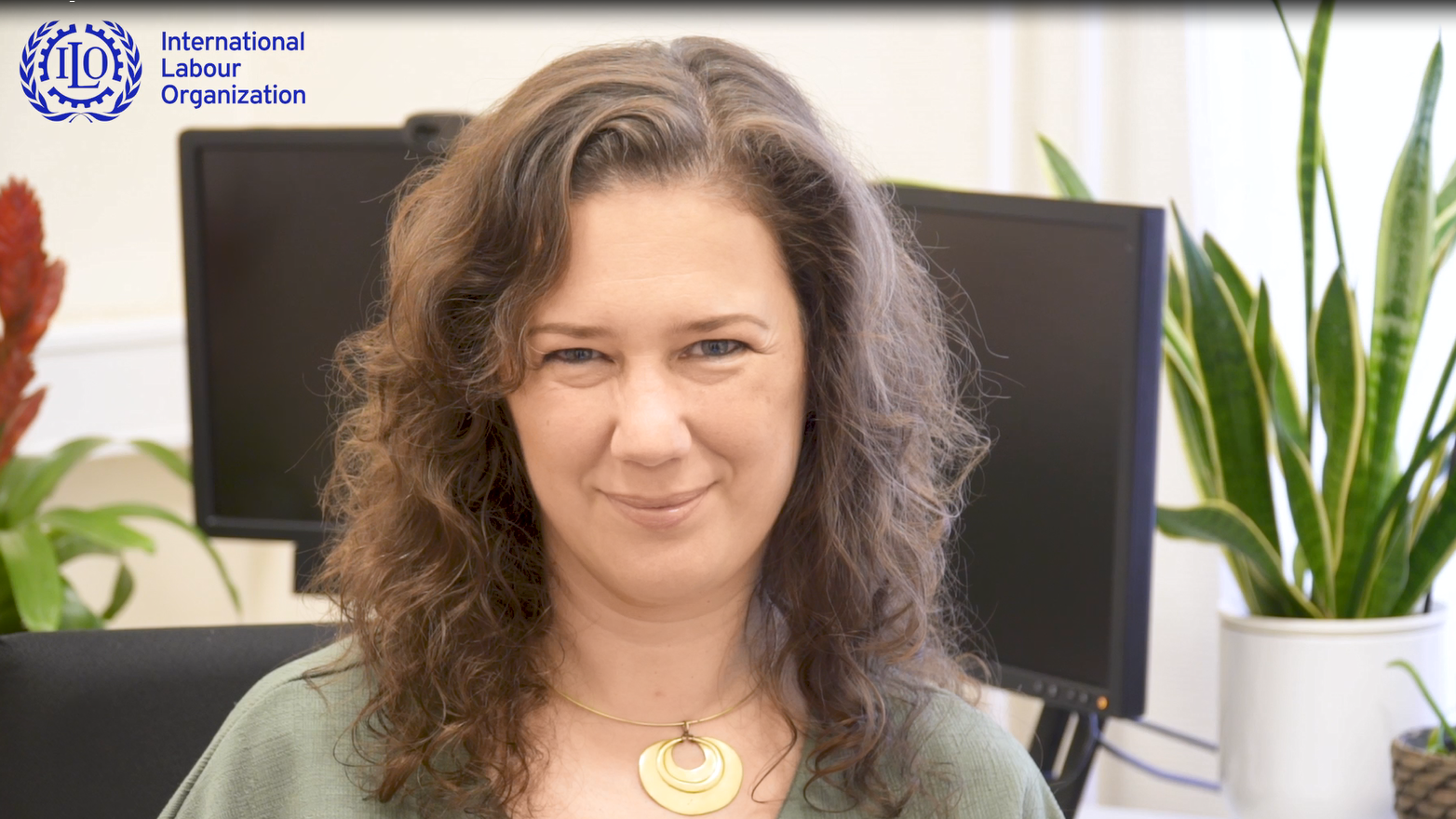Romania resources
-

MEET THE DIRECTOR: What has been the impact of the pandemic in the region?
15 September 2021
Markus Pilgrim, Director of the ILO Office for Central and Eastern Europe talks about the impact of COVID-19 pandemic on labour markets in the region, what the ILO has done to mitigate the impact and what the emerging trends are in employment. The pandemic led to a severe economic recession in the region, with about 8% of working hours lost in 2020, an equivalent of 10 million jobs. These losses translated into an increase in inactivity, many people dropping out of the labour market. The ILO CEE Office started to collect solid evidence on the impact of the pandemic in spring 2020, and produced assessment reports in four Western Balkan countries, which led to several policy changes in these countries. In addition, the office designed job and income protection measures, such as a cash transfer project for dismissed Albanian textile workers. The next big thing is the ongoing technological transformation, fair transition towards a digital and green economy, which means a major shift from traditional to new sectors and re-skilling.
-

MEET THE SPECIALISTS: Alessandra Molz, Skills
16 August 2021
Alessandra Molz, ILO Skills Specialist explains how she assists governments, worker and employer organizations in developing quality vocational education and training for young people, and lifelong learning opportunities for adult workers in Central and Eastern Europe. Her work includes skills needs anticipation, identifying skills mismatches, development of new methodologies, such as e-Learning and blended learning, and building bridges between employers and workers, or employers and education. The world of work is changing, young people and adults equally need new skills that prepare them for the future of work.
-

© AFP/Europress 2024
ITUC Global Rights Index for 2021 shows that COVID-19 impacted workers’ rights in Central and Eastern Europe
10 August 2021
The International Trade Union Confederation (ITUC) has released its yearly Global Rights Index for 2021. The report shows that the COVID-19 pandemic led to an increase in violations of workers’ rights across the globe. In Europe, the most frequently violated rights have been the rights to strike, to go for collective bargaining, and to establish and join a trade union. For Central and Eastern Europe, the index shows a mixed picture. While some countries increased workers’ access to rights, other countries moved in the opposite direction.
-

© ILO 2024
Meet the Specialists: Kenichi Hirose, Social protection
03 August 2021
Ken Hirose, Senior Technical Specialist for Social protection, Occupational Safety and Health, and Labour inspection shares how he assists ILO partners and constituents in improving the quality of work and safety of workers in Central and Eastern Europe. The challenges created by the COVID-19 pandemic at workplaces made ILO services in these areas sought after. In the post-pandemic period, extending social protection coverage to workers in non-standard forms of employment (part-time, undeclared, platform etc) will be a priority.
-

Meet the Specialists: Iulia Drumea, Employers' organizations
16 July 2021
Iulia Drumea, Employers' Organizations Specialist explains how she supports ILO work with Employers organizations in Central and Eastern Europe. Employers organizations work to create a business-friendly environment for their members. The ILO service offer focuses on recommendations Employers can use to influence national policies and regulations on entreprises; assistance to develop better services to members; and advising Employers on how to improve performance and grow their membership.
-

© iStock/Ivan Pantic 2024
Non-standard forms of employment: assets or liabilities?
21 June 2021
Temporary employment, part-time work, temporary agency work, fixed term contracts, disguised employment: non-standard forms of employment can help enterprises adjust quickly to market dynamics and tackle labour shortages. However, when misused to reduce labour costs at the expense of fundamental labour rights, they deprive workers of fair pay, decent working conditions and limit their access to social security. The new ILO report looks into how non-standard forms of employment are implemented in Albania, Bulgaria, Hungary, Montenegro, North Macedonia, Romania, Serbia and Slovakia.
-

Meet the Specialists: Daniela Zampini, Employment creation
14 June 2021
Daniela Zampini, the Employment Specialist of the ILO Office for Central and Eastern Europe explains what she does to create more and better jobs, how she works with governments, employers, workers, civil society organizations or municipalities, and what achievements she is most proud of. In 2020, due to COVID-19 related lockdowns, confinements, and other restrictions, CEE countries lost on average 8 per cent of their total working hours. Daniela explains how the ILO responded to the crisis.
-

Meet the Specialists: Magnus Berge, Workers organizations
14 June 2021
Magnus Berge, Senior Specialist for Workers' Organizations explains how he supports ILO work with Trade Unions in Central and Eastern Europe. He promotes Trade Unions so that they can work more effectively to improve working conditions of workers and to protect workers' rights across the region. He advises Trade Unions when their rights are violated. ILO work with Workers organizations focuses on four areas: 1) helping Trade Unions modernize their operations and structures, 2) improve their service delivery to members, 3) helping them to communicate better about laws, workers' rights and services available for them, and 4) helping to draft good policy proposals on labour laws based on International Labour Standards.
-

Non-standard forms of employment in selected countries in Central and Eastern Europe. A critical glance into regulation and implementation
19 May 2021
This volume aims to offer a retrospective look into the implementation of some non-standard forms of employment (NSFE) in selected Central and Eastern European countries. It captures independent critical views on national regulations and their enforcement of temporary and part-time work, temporary agency work, disguised employment relationships and “simplified” employment.
-

© iStock 2024
New challenges for TVET and skills development - what do you want to learn today?
30 April 2021
The importance of learning new skills has never been as evident as in the last year. Almost overnight, all of the global workforce had to admit they faced challenges with their digital skills. We had to switch to new ways of managing work and doing business, of participating in learning and delivering education and training to young people and adults alike. The impact of the COVID-19 pandemic on education and skills development systems has been profound. Teachers, coordinators and policy makers discovered the challenges, but also the opportunities of applying digital learning technologies.